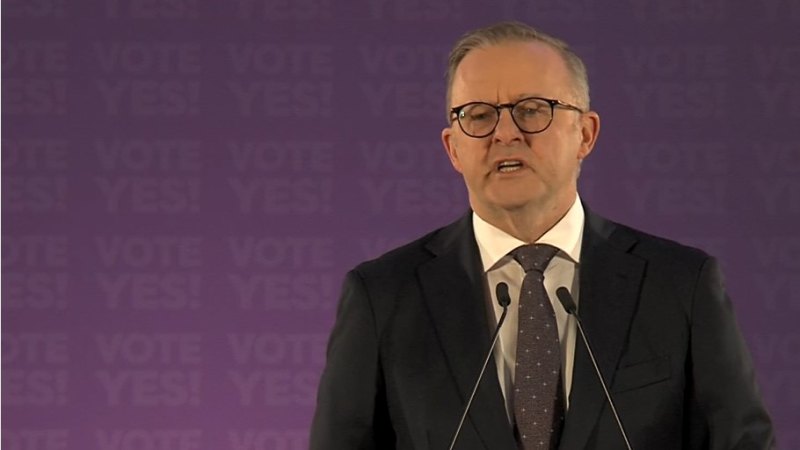Voice referendum locked in for October 14

Save articles for later
Add articles to your saved list and come back to them any time.
Prime Minister Anthony Albanese has confirmed October 14 as the date for the historic Voice to parliament referendum.
Australians will cast their vote on whether to enshrine recognition of the nation’s First Peoples in the Constitution by creating a body that would advise the parliament and executive government on matters relating to Indigenous Australians.
Prime Minister Anthony Albanese announces the referendum date in Adelaide.Credit: Nine News
The announcement of the date will trigger a six-and-a half week campaign from the Yes and No camps and comes after more than a year of bitter political debate over the proposal, which has been mostly along partisan political lines.
“Now, my fellow Australians, you can vote for it. The idea for a Voice came from the people and it will be decided by the people,” Albanese said on Wednesday morning in Adelaide.
Albanese confirmed the date in the suburb of Elizabeth, once home to the iconic Holden factory, and urged Australians to vote Yes “to an idea whose time has come”.
“On that day every Australia will have a once in a generation chance to bring this country together,” Albanese said.
The decision to formally launch the campaign in Adelaide underscores the critical importance of South Australia as one of the “swing” states considered most ‘in play’ by both the Yes and No campaigns, alongside New South Wales and Tasmania.
Just eight of 44 referendums have succeeded since Federation and for the referendum to pass, it must be backed by a double majority of states and the national vote. The votes of people living in the two territories count in the national vote, but not in the state-by-state count.
Both camps view Queensland as an almost certain No vote, while Victoria is considered the state most likely to vote Yes. Western Australia is viewed as leaning towards No, Tasmania as leaning towards Yes, while New South Wales and South Australia are up for grabs.
The Yes camp has a mountain to climb, with the No campaign taking the lead in public opinion polls.
A defeat for the Yes vote would be a major blow to Indigenous Australians, damage Albanese’s political standing and boost that of Opposition Leader Peter Dutton, who has argued the “Canberra-based Voice” would “re-racialise” Australia and be regressive.
Albanese has said the vote is a “once-in-a-generation opportunity”, signalling he would not seek to create the Voice by legislation if the referendum fails.
The question all eligible Australian voters will be asked to answer on the day of the referendum is:
If the Yes vote prevails, a new chapter IX will be inserted into the Constitution with the title “Recognition of Aboriginal and Torres Strait Islander Peoples”.
The two most recent referendums, on whether Australia should become a republic and whether to insert a preamble into the document, were defeated in 1999.
The most recent referendums to succeed were in 1977 and related to casual vacancies in the Senate, the retirement age of judges, and whether territorians’ votes should count in referendums.
Cut through the noise of federal politics with news, views and expert analysis from Jacqueline Maley. Subscribers can sign up to our weekly Inside Politics newsletter here.
Most Viewed in Politics
From our partners
Source: Read Full Article
